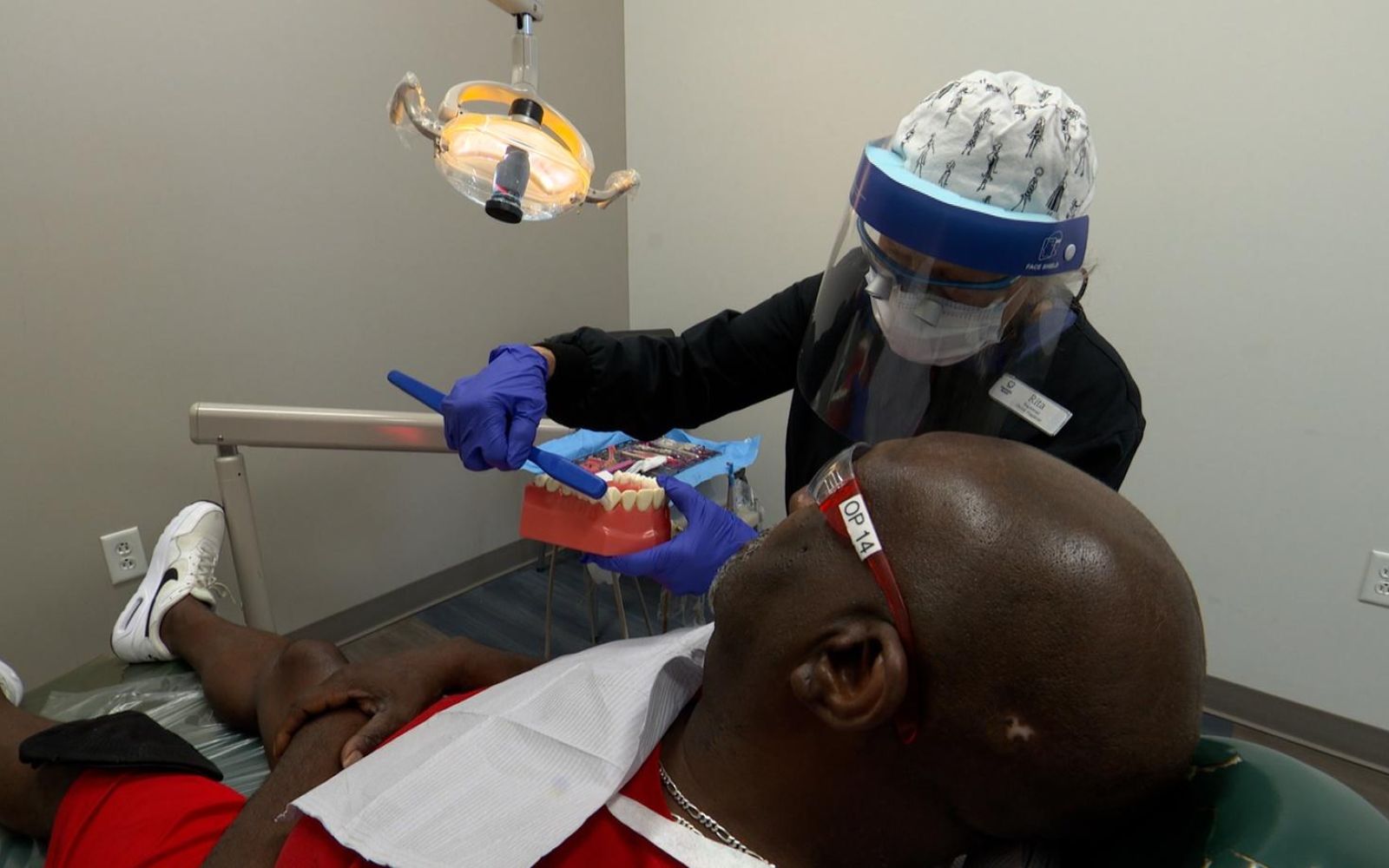Oral health is physical health.
Good dental hygiene should be part of your broader self-care practices.

A healthy diet, physical activity and a good night’s sleep is important to your physical health. Equally important is good dental hygiene.
Your mouth is filled with bacteria. Without proper care, these bacteria can infect the gums and cause inflammatory gum diseases such as gingivitis and periodontitis. This can lead to a variety of other problems, like:
- Cardiovascular disease: Recent studies have shown that people with poor oral health, including untreated cavities, tooth loss and gum disease have higher rates of heart attack or stroke. While there is still some uncertainty about the connection, it is believed that the bacteria that causes gingivitis and periodontitis travels through the bloodstream and may contribute to cardiovascular complications.
- Diabetes: High blood sugar can weaken white blood cells. This can make it more difficult to keep your mouth healthy since white blood cells help fight infections that can occur in the mouth. Higher bacteria levels can lead to other complications such as tooth decay, cavities, tooth loss and gum disease.
- Pregnancy complications: Nearly 60 to 75% of pregnant women have some kind of gum disease. This inflammation may become more aggravated by changing hormones that happen during pregnancy. If left untreated, the bone that supports the teeth can become soft and the gums infected. Pregnant women are also more prone to cavities. Gum disease has been associated with poor pregnancy outcomes, including preterm birth and low birth weight
- Overall well-being: Poor oral health may affect your psychological, social and financial wellbeing. Visibly poor oral hygiene can have a negative impact on daily interactions, including those at work. This can lead to anxiety, low self-esteem, loneliness, anxiety and depression.
Good oral hygiene practices.
Good oral health is essential to good overall health. To help keep your mouth healthy:
- Brush your teeth for two minutes at least twice a day and after every meal.
- Use dental floss or a water flosser to help clean between the teeth and under the gums.
- Use fluoride toothpaste. Fluoride helps strengthen your teeth’s hard outer surface and protect them from decay.
- Angle the bristles toward the gumline, so they clean between the gums and teeth.
- Brush gently using small, circular motions. Do not scrub hard back and forth.
- Brush all sides of each tooth.
- Brush your tongue.
- Replace your toothbrush when the bristles become worn or after an illness to avoid reinfection.
- Visit a dentist once or twice a year.
- Limit sugary foods and drinks.
- Stop tobacco. Tobacco raises your risk of gum disease, mouth cancer, and throat cancer. It can also stain your teeth and cause bad breath.
- If you have sensitive teeth, avoid acidic foods like citrus fruits and juices, soda, tomatoes, vinegar and sauerkraut.
The Nashville General Hospital Foundation, in cooperation with Nashville Public Television, has produced a helpful video on the importance of oral health and the connection to your entire body. Watch Good Dental Health.
This information is not intended to be a substitute for professional medical advice. You should talk with your primary care physician or other qualified medical professionals regarding diagnosis and treatment of a health condition.
Sources:
- cdc.gov, “Diabetes and Oral Health”, Centers for Disease Control and Prevention, December 30, 2022
- cdc.gov, “Oral Health”, Centers for Disease Control and Prevention, August 31, 2023
- nidcr.nih.gov, “Oral Hygiene”, National Institute of Dental and Craniofacial Research part of the National Institutes of Health, October 2023
- nidcr.nih.gov, “Oral Health: A Gateway to Overall Health”, National Library of Medicine part of the National Institutes of Health, September 21, 2021



